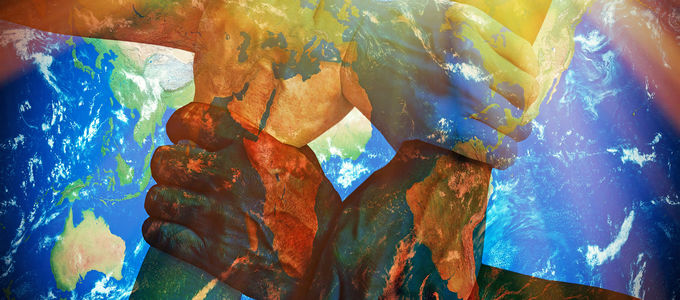
Let us never stop: the peace in this world can certainly use our prayers. It has become weak and needs support. On this International Day of Prayer for Peace, let us indeed pray for peace.
The peace of the world is sick. If it were a person it would have to be admitted to hospital and given intensive care. Peace means friendship, and it is—without a doubt—one of the greatest desires of mankind. In a peaceful environment people can rest, reflect on their future, do good works, and find joy in life. Peace means being whole and healthy. War, unrest, dispute, and conflict, on the other hand, destroy everything. What remains is chaos, disorder, destruction, and discontent.
Demanding peace
Of course, peace is not a human patient that could be treated in a hospital. It is and remains an ideal. It cannot be purchased, although it does come at a cost. There is no “peace shelf” from which people can simply take what they need and serve themselves. Peace is something we must demand, and for which we must work. Prayer offers us an opportunity to do this.
It is not without reason that the churches have decided to become involved when it comes to praying for world peace. The Chief Apostle of the New Apostolic Church, Jean-Luc Schneider, is calling upon all the members of his Church around the globe to pray for peace in the world. This is to be an intimate, compelling, and devoted prayer. This also explicitly incorporates individual action. On 18/19 September 2019, the midweek divine services of the New Apostolic Church were based on the following passage from the gospel of John: “Peace I leave with you, My peace I give to you; not as the world gives do I give to you. Let not your heart be troubled, neither let it be afraid.”
Jesus leaves peace
Human peace is bound to rules. Obeying these rules results in certainty, security, and order. Justice in society and among the generations is one of these rules. Concerning this, the Chief Apostle remarks: “A society that does not take into account the basic needs of all cannot live in peace.” This sounds very political nowadays, when human needs are extremely constrained. And yet it is “only” an old bit of wisdom from mankind’s greatest book of peace. Tolerance, mutual respect, esteem for others, love for one’s neighbour—these are age-old values. In the Old Testament, specifically in Psalm 85: 10, we even read that righteousness and peace have “kissed” one another.
In general, the Ten Commandments are already a tried and proven foundation for peace in the world. Together with the instructions of the gospel, they bring to expression that material and egotistical desires must not have excessive importance in our lives. Peace is determined by giving: let us do to others as we would have them do to us. And that is where we often fail. That is why human peace is so vulnerable and imperfect—because man would rather take than give.
Peace is a gift
Jesus grants peace. His peace is a gift for us which we have not earned. But we can indeed unwrap it! After all, what good is a gift that sits in the corner or on the shelf? In this context, unwrapping the gift means practising tolerance, living together in peace with one another as good neighbours, and uniting our strength to maintain international peace and security—this is also expressed in the preamble to the Charter of the United Nations. And it makes one thing very clear: peace begins at the door to our own house—not in some other distant place in the world. If we all lived in peace with our neighbour, there would be less fear in the world.
Can we not simply make peace? Of course we can. First with God, then with ourselves, and then with others.
Photo: Jürgen Fälchle – stock.adobe.com




